Education
PhD in Accounting, University of Georgia, 2019Masters, Applied Economics, University of Michigan, 2015
Masters, Business Administration, University of Michigan, 2016
Masters, Professional Accounting, University of Texas, 2007
Bachelors, Business Administration, Finance, University of Texas, 2005
Research Interest
Financial Accounting, international accounting and capital markets, linguistics, investor tastes, audit, and Islamic finance.Courses Taught
ACCT 328: Financial Reporting IIBiography
Academic Research
Dr. Shafron is an Assistant Professor of Accounting at Mays Business School, Texas A&M University. She focuses on financial archival research. Much of her research is informed by her professional experience with accounting regulators and standard setters. Her research interests include international accounting and capital markets, linguistics, investor tastes, audit, and Islamic finance.
Knowing she wanted to pursue a PhD in accounting, Emily tailored her work experience to gain a broad understanding of the accounting industry. Emily first worked at the Governmental Accounting Standards Board, where she helped develop the derivatives and hedge accounting standard (GASB 53), and subsequent implementation guide. Emily then moved into an advisory role in KPMG, consulting with audit and non-audit clients on the appropriate accounting treatments for highly-technical areas within a company’s operations (e.g., derivatives, asset securitizations, and consolidations). Here, Emily noticed that she was drawn to complex international accounting issues, where accounting outcomes were influenced by things such as differences in regulation and cultural norms. This led Emily to move to the Malaysian Accounting Standards Board, where she applied her standard setting and auditing knowledge to assist Malaysia in adopting IFRS.
In 2012, Emily decided it was time for her to pursue her PhD. Emily is passionate about making a difference—researching questions that are not only publishable, but more importantly, could support more-informed decision making. For example, her dissertation examines the role language translations of IFRS may play in impacting financial statement comparability, as intended by the IASB. Emily designed this study to both document the impact translations have on comparability and identify country-, language-, and firm-specific characteristics that moderate this relation. Through the later, Emily hope to identify areas where more translated guidance may be helpful. Her ultimate goal is to serve as an academic perspective for the FASB, GASB, or IASB, bringing research into discussions of how US GAAP/IFRS should evolve.
Emily’s main research area centers on language barriers in international accounting. Her dissertation ‘IASB—The Accounting Tower of Babel: Language and the Translation of International Accounting Standards,’ looks at the effectiveness of translations of IFRS on comparability and accounting quality. A co-author project with three international researchers ‘Is Accounting the ‘English’ Language of Business? The Role of Language in IFRS Adoption’ examines language barriers within the IFRS adoption process.
Emily also examines auditor response to firm misconduct. One paper, ‘Auditing the Accused: Financial Statement Audit Responses to Illegal Acts by Clients,’ explores variation in auditor response to client misconduct, based on whether or not a law was allegedly broken. The second, ‘Good Thinking (…for an Auditor…): The Effect of Auditors’ Thinking Dispositions on Their Inclination to Challenge Management’s Preferred Reporting,’ explores thinking dispositions that influence an auditor’s inclination to challenge management.
Teaching
Emily believes her students deserve high-quality teaching that incorporates standard accounting theories and principles, examples of how those theories and principles are applied in practice (e.g., current events), and summaries of relevant research that informs students what we really know about how accounting information is created, disseminated, and used. Emily teaches with a lot of enthusiasm and aims to convey her love and mastery of the subject matter. She also tries to make learning fun, creating new course content to cater to this generation’s strengths and interests. She works hard to make sure the students know she cares about the class and their progress.
To foster an innovative classroom, Emily incorporates technology within the classroom when she feels it reinforces concepts and facilitates the learning process. Integrating different source material into lively class-discussions, she aims to give her students a richer understanding of both the fundamentals of accounting, as well as how accounting shapes the economy we all are a part of. Even if her students do not choose accounting as their career path, she wants them to know the information they learn has a usefulness that extends well beyond the classroom walls.
Research Publications
Is Accounting the English Language of Business? The Role of Language in IFRS Adoption and Information Loss.
Jenny (Xinjiao) Guan, Emily Shafron, Kangtao Ye, and Wenzi Zhuang
Review of Accounting Studies, 1-58. 2025,
https://doi.org/10.1007/s11142-025-09881-9
‘No Comment’: Language Frictions and the IASB’s Due Process.
Eduardo de la Flores, Brian Monsen, Emily Shafron, Chris Yust
Contemporary Accounting Research,42(1), Volume 42, pp. 446-489, 2025.
https://doi.org/10.1111/1911-3846.13001
(Featured here on the Columbia Law School’s Blue Sky Blog on Corporations and Capital Markets)
(AAA Public Interest Best Paper Award – 2023 IAS Midyear Meeting)
Investor Tastes: Implications for Asset Pricing in the Public Debt Market.
Emily Shafron
Journal of Corporate Finance, Volume 55, pp. 6 – 27, April 2019
https://doi.org/10.1016/j.jcorpfin.2018.08.006
(Based on 1st year summer paper)
Disincentives to Exchange Customized Local GAAP for IFRS.
Herita Akamah, Stephani Mason, and Emily Shafron
Journal of Accounting and Public Policy, Volume 41.6, 2022
https://doi.org/10.1016/j.jaccpubpol.2022.107002



